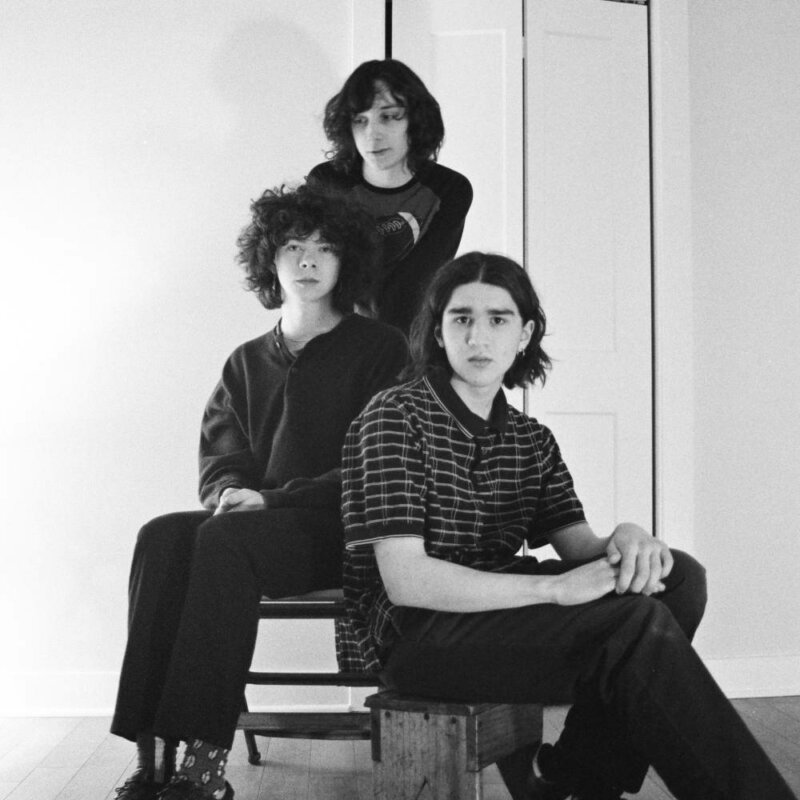On Stage
Sunrise Arena
Formed in 2019, Lifeguard are Asher Case (bass, vocals), Isaac Lowenstein (drums, percussion), and Kai Slater (guitar, vocals). At its core, Lifeguard is a punk band. Their music is loud and energetic. It’s also, at its core, visceral and hypnotic. For the Chicago-based trio that can include repetition and blasts of speaker cone-shredding feedback. Their songs adeptly balance melody and chaos, rhythm and drone. Hooks and noise are held to the same standard. Both have to stick.
They’re a young band, but they’ve already found a place at the forefront of an important emerging music community in their hometown. They are quite prolific. In just three years, Lifeguard has put out a full-length, two EPs, and two 7” singles.
On July 7, Matador will release ‘Crowd Can Talk / Dressed in Trenches’, a composite of two EPs by Lifeguard. ‘Crowd Can Talk’ was originally released in the summer of 2022 by Chicago label Born Yesterday, while ‘Dressed in Trenches’ features five brand new and unreleased songs. ‘Crowd Can Talk / Dressed in Trenches’ will be made available on vinyl for the first time (A and B-sides of a 12”) and also on CD.
‘Crowd Can Talk’ and ‘Dressed in Trenches’ are closely related. They were recorded in separate sessions, but at the same studio (Electrical Audio) and with the same engineer (Mike Lust) and within the space of 12 months. Each finds the band refining its voice –honing songs that are succinct, hooky, and propulsive. There’s a newly disciplined attention to detail. Lifeguard write together through collaboration and improvisation, but they’ve learned to streamline their sound, to make each hook, beat, and gesture purposeful.
On each record, there are echoes of underground guitar bands from decades past. This is not record-collector music, though. It’s the product of a present-day community. Lifeguard are, first and foremost, a performing band and the songs are written to stand up in that moment.
“More than old records – before that, before anything – we’re influenced by live shows and people around us,” explains Slater. “The inspiration comes from playing shows with people and having that mind-blown moment of seeing some friend play at Schubas or Book Club,” adds Lowenstein. “It’s happening on these tiny little scales of seeing kids play live and [knowing] this is something new and interesting.”


